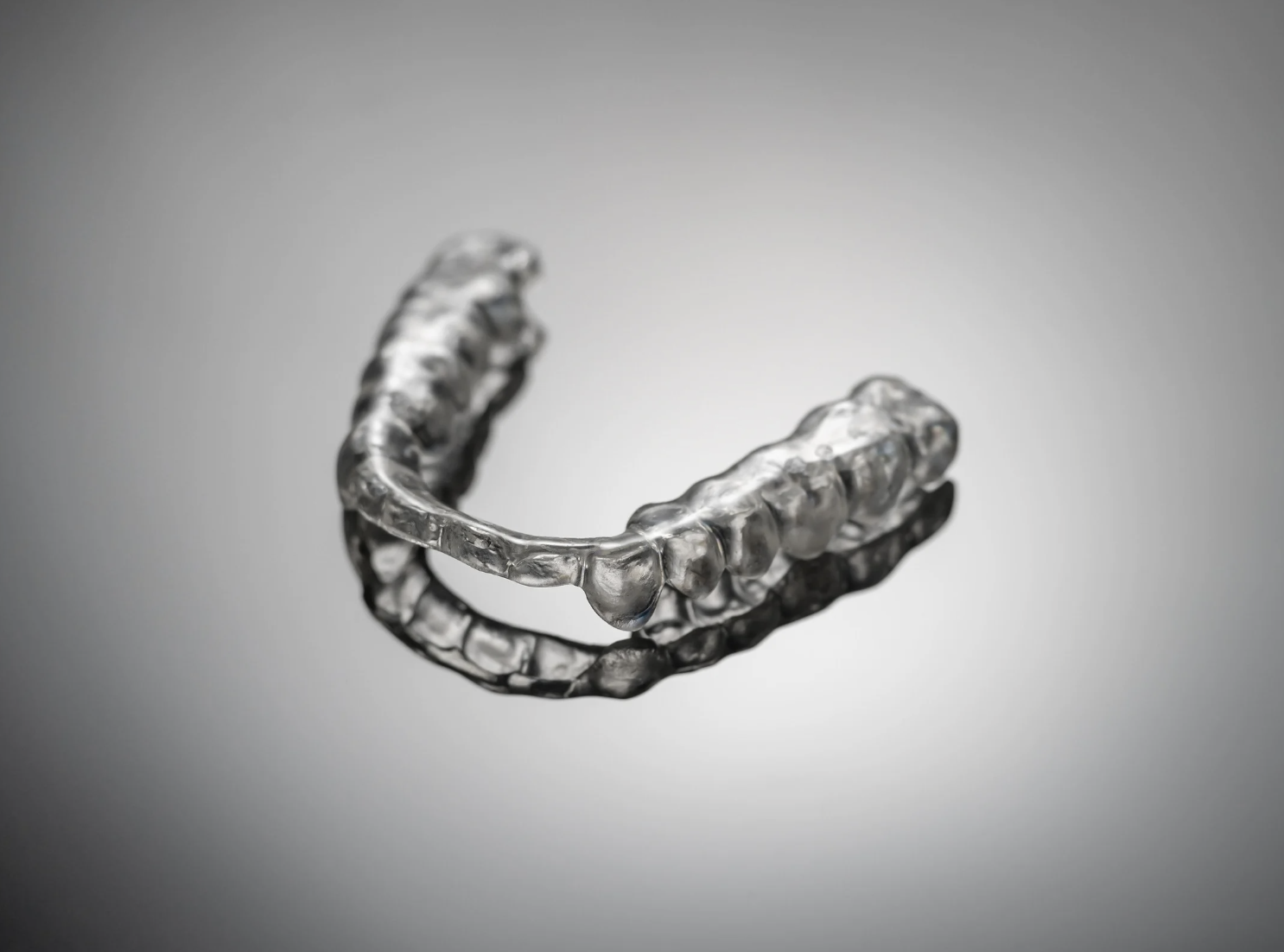Protect Your Dental Implants in Kansas City, Kansas—Even While You Sleep
After two decades working with dental practices across the Midwest, I've seen countless patients invest in beautiful dental implants, only to unknowingly put them at risk every single night. The culprit? Teeth grinding and clenching—habits so common that nearly 1 in 3 adults experience them without even realizing it.
At State Avenue Dental Office, we believe that taking care of your implants shouldn't stop when your head hits the pillow. Here's what you need to know about protecting your investment with a custom night guard.
Why Your Implants Need Protection (Even Though They're "Permanent")
Here's something that surprises most patients: dental implants might be titanium-strong, but they're not invincible.
While it's true that implants can't develop cavities like natural teeth, the structures supporting them—your gums, bone, and the prosthetic components—remain vulnerable to excessive force. When you grind or clench at night (a condition called bruxism), you're applying hundreds of pounds of pressure directly onto these areas.
Over time, this can lead to:
Loose abutment screws that connect the crown to the implant
Fractures in the porcelain or zirconia crown
Bone loss around the implant site
Chronic inflammation of the surrounding tissue
Think of it this way: if you wouldn't use a hammer on fine china, why let your jaw muscles exert that kind of force on precision dental work?
How a Custom Night Guard Actually Works
A professionally fitted night guard doesn't stop you from grinding—it redistributes the pressure. Instead of concentrating force on individual teeth or implants, the guard spreads it across the entire arch. This "shock absorber" effect protects both your implants and any remaining natural teeth.
What makes a custom guard different from drugstore options? Everything. Your bite pattern, jaw alignment, and the specific location of your implants all factor into the design. Some patients do better with an upper guard, others with a lower one. As an experienced dentist in Kansas City, Kansas, we take precise impressions to ensure your guard fits your unique anatomy—not a generic mold.
A well-designed guard should feel secure but not bulky, protective but not restrictive. You'll actually want to wear it.
Making It Work: Practical Tips from Real Patients
The most common question we hear? "Will I be able to sleep with this thing in my mouth?"
Most patients adjust within a week or two. Here's what helps:
During the adjustment phase: Try wearing your guard for short periods while watching TV or reading before bed. This helps your mouth adapt without the pressure of trying to fall asleep.
Each morning: Simple jaw stretches—gently opening and closing your mouth, moving it side to side—can relieve any residual tension. Think of it like stretching after a workout.
For cleaning: Lukewarm water and a soft-bristled brush are your friends. Avoid toothpaste (it's too abrasive) and hot water (it can warp the material). Once a week, a denture cleaner soak keeps things fresh without damage.
Small Effort, Big Payoff
Your dental implant represents a significant investment—not just financially, but in your quality of life, confidence, and oral health. It's designed to last decades, but only if you protect it properly.
A custom night guard is one of the simplest, most effective ways to extend the life of your implants. It works silently while you sleep, preventing problems before they start rather than treating damage after it occurs.
At State Avenue Dental Office in Kansas City, we create night guards tailored specifically to your bite, your comfort level, and your lifestyle. We'll make sure it fits right the first time and adjust it as needed until it feels like a natural part of your routine.
Ready to protect your smile around the clock? Call us today to schedule a consultation. Let's make sure your implants stay healthy for years to come—because an investment this important deserves protection 24/7.



